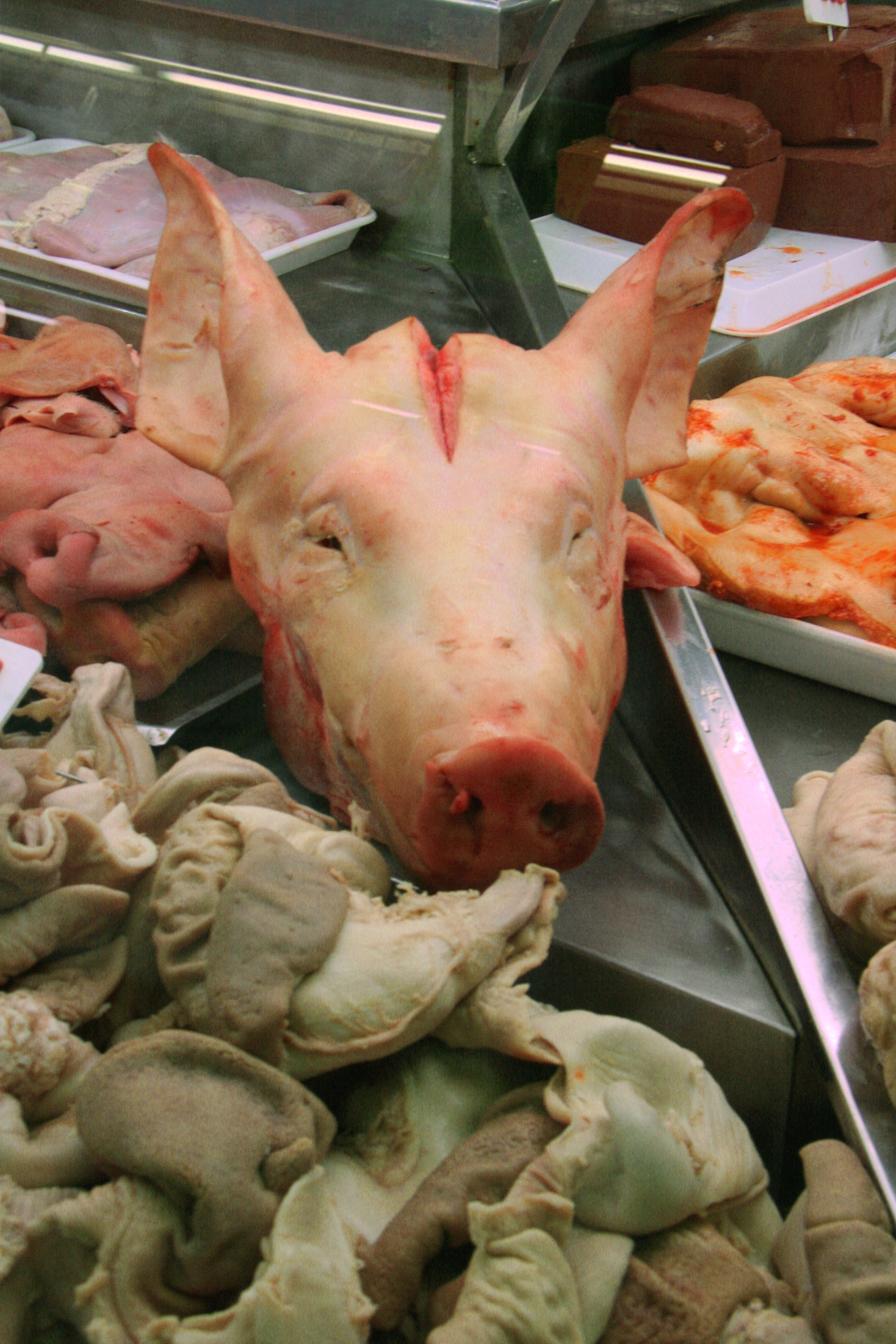I’ve mentioned before that the idea of free-range chicken doesn’t sound particularly ethical to me. If I were a chicken, my main objection to the slaughterhouse would not be the accommodations. I would be happy to lodge in cramped quarters provided you do not kill me and my family when it’s time to check out.
Is it any more decent if we treat chickens, pigs, cows and other creatures relatively kindly before killing them for food and clothes? The opening of “Loving Animals to Death,” James McWilliams’ American Scholar article about the Food Movement’s considerable blind spot:
“Bob Comis of Stony Brook Farm is a professional pig farmer—the good kind. Comis knows his pigs, loves his pigs, and treats his pigs with uncommon dignity. His animals live in an impossibly bucolic setting and ‘as close to natural as possible.’ They are, he writes, so piggy that they are Plato’s pig, ‘the ideal form of the pig.’ Comis’s pastures, in Schoharie, New York, are playgrounds of porcine fun: ‘they root, they lounge, they narf, they eat, they forage, they sleep, they wallow, they bask, they run, they play.’ And when the fateful day of deliverance arrives, ‘they die unconsciously, without pain or suffering.’
Comis’s patrons—educated eaters with an interest in humanely harvested meat—are understandably eager to fill their forks with Comis’s pork. To them, Comis represents a new breed of agrarian maverick intent on bucking an agricultural-industrial system so bloated that a single company—Smithfield Foods—produces six billion pounds of pork a year. Comis provides a welcome alternative to this industrial model, and if the reform-minded Food Movement has its way, one day all meat will be humanely raised and locally sourced for the ‘conscientious carnivore.’
Except for one problem: Comis the humane pig farmer believes that what he does for a living is wrong. Morally wrong. ‘As a pig farmer, I lead an unethical life,’ he wrote recently on The Huffington Post. He’s acutely aware that he ‘might indeed be a very bad person for killing animals for a living.’ Comis’s essential objection to his line of work is that he slaughters sentient and emotionally sophisticated beings. His self-assessment on this score is unambiguous. His life is one that’s ‘shrouded in the justificatory trappings of social acceptance.’ To those who want their righteous pork chop, he asserts that ‘I am a slaveholder and a murderer’ and that ‘what I do is wrong.’ Even if ‘I cannot yet act on it,’ he concludes, ‘I know it in my bones.'”
Tags: Bob Comis, James McWilliams

